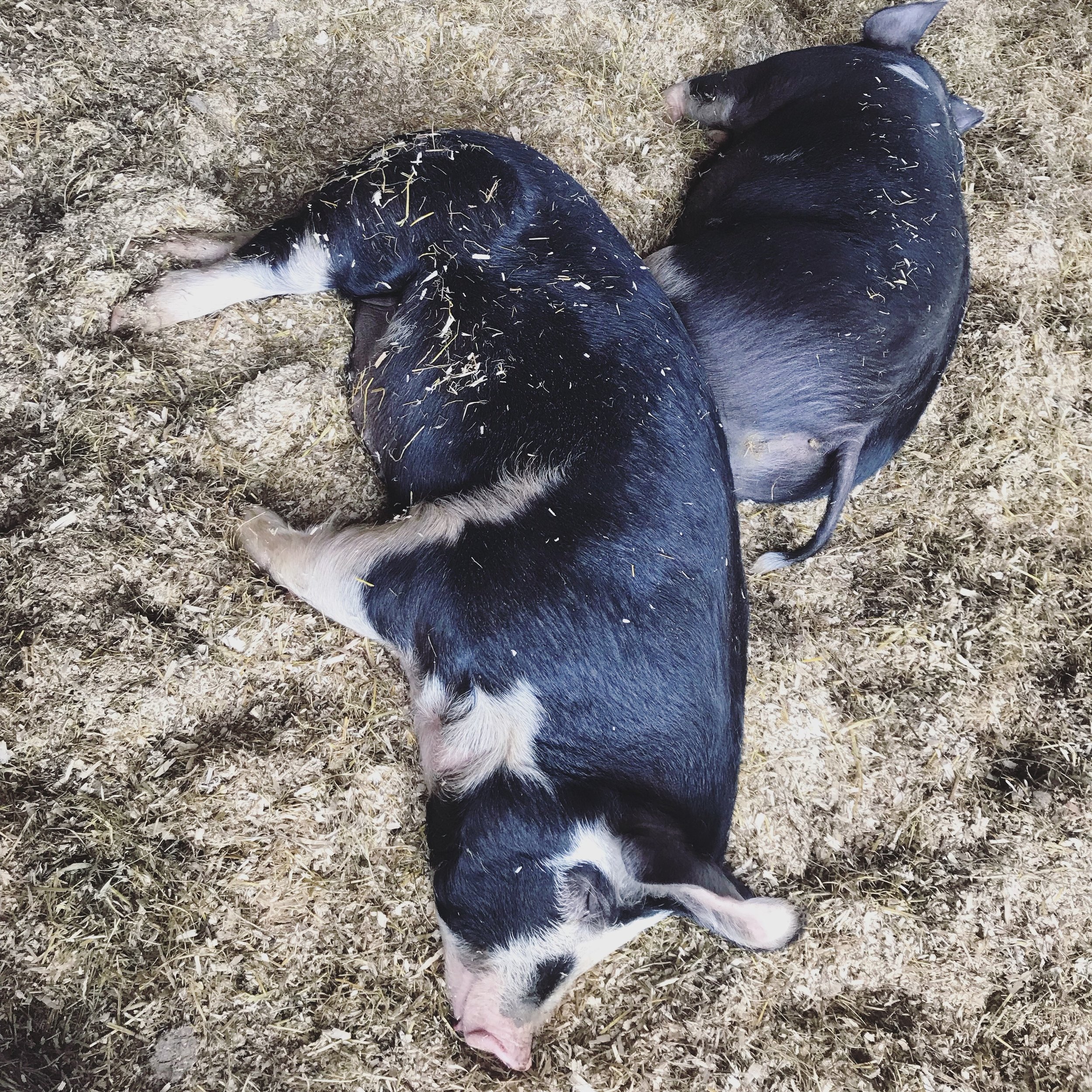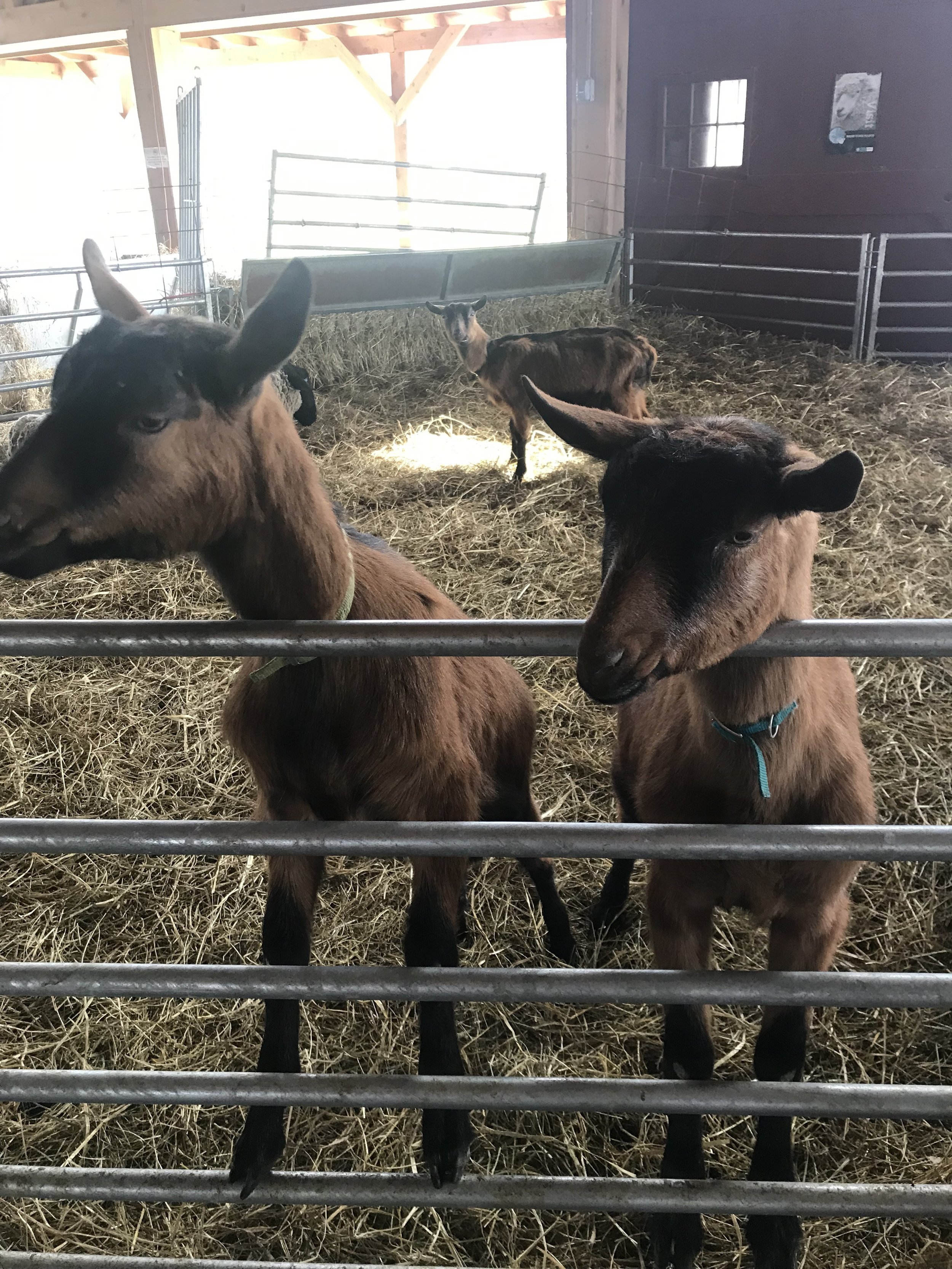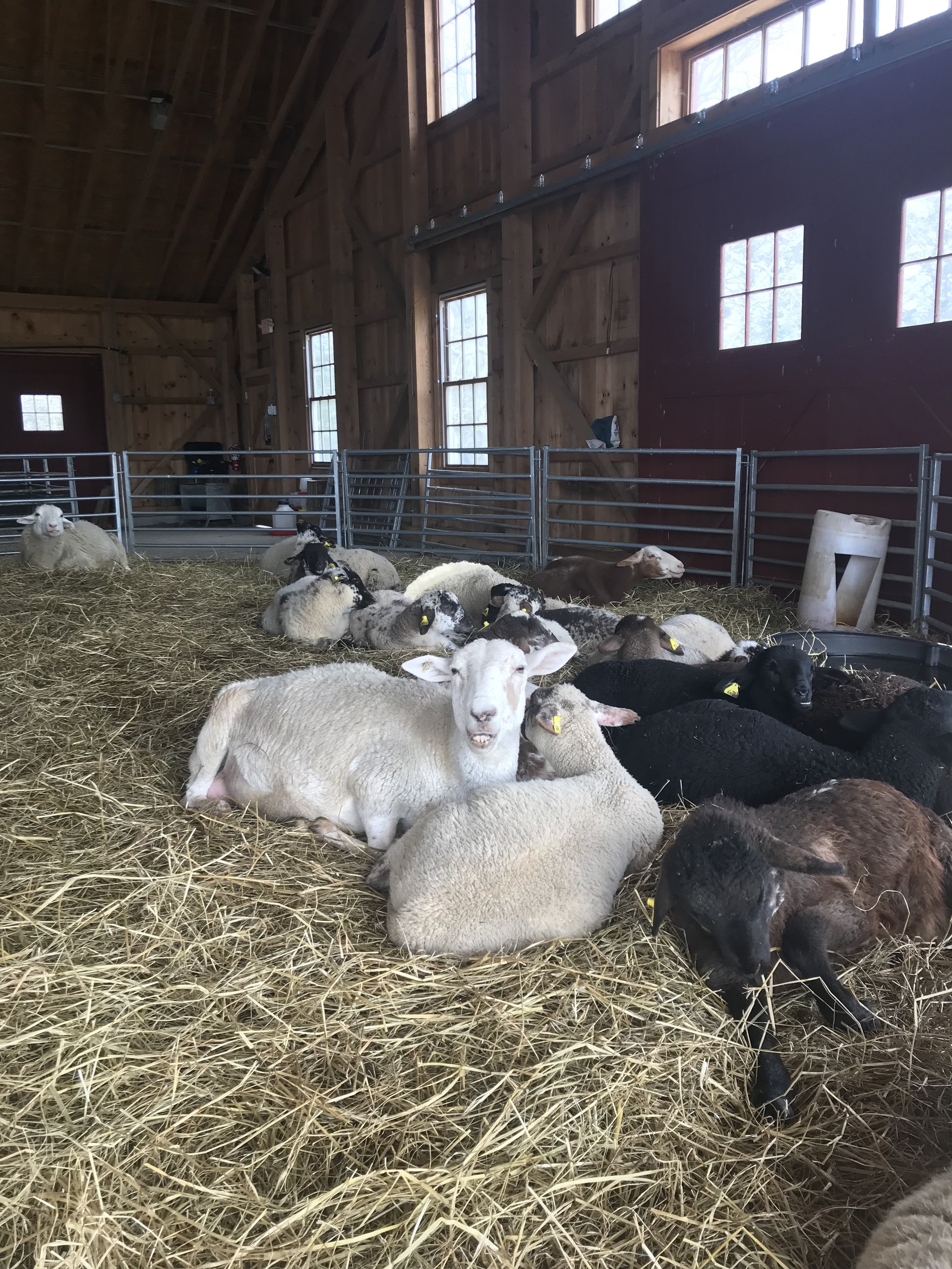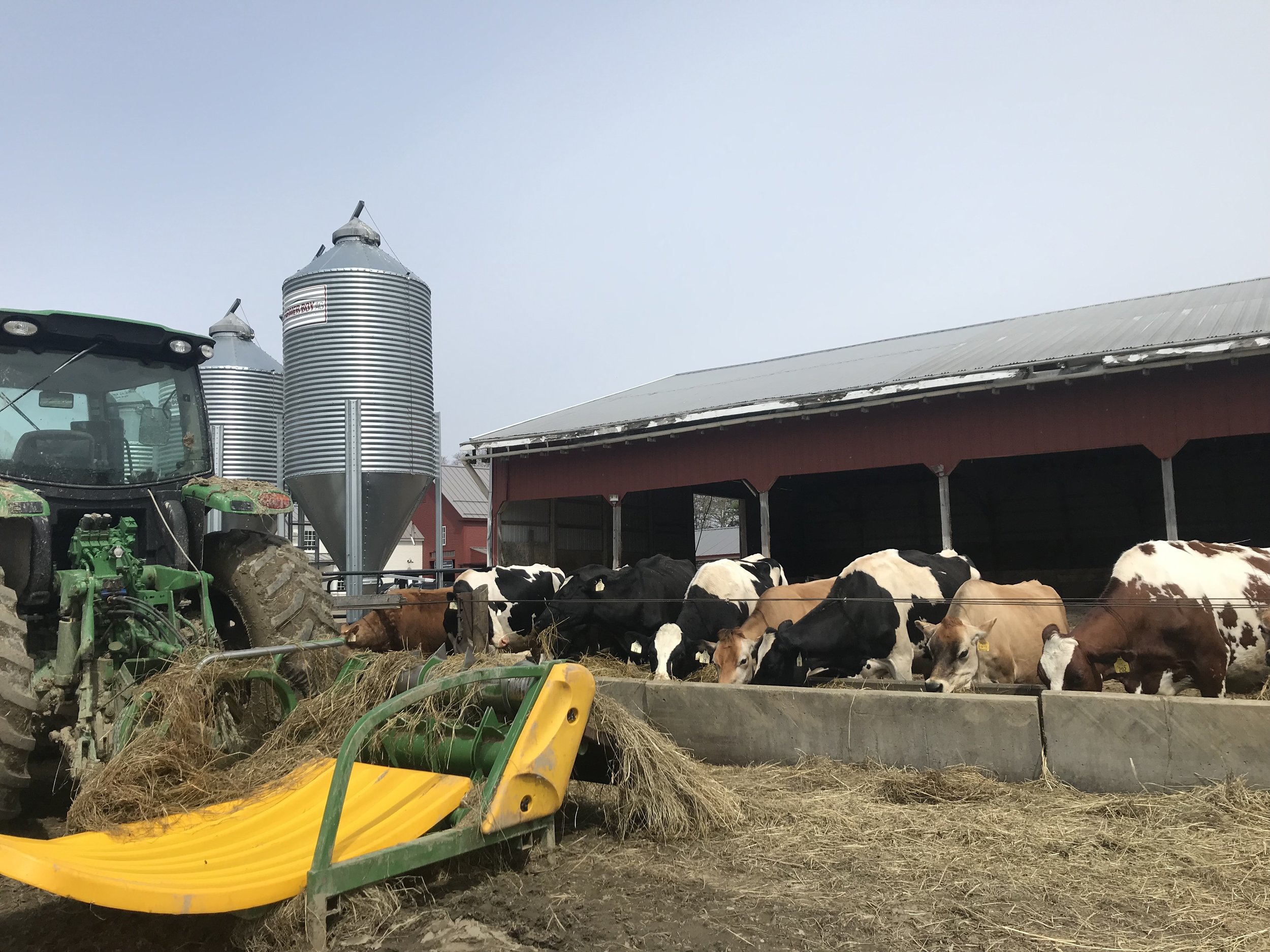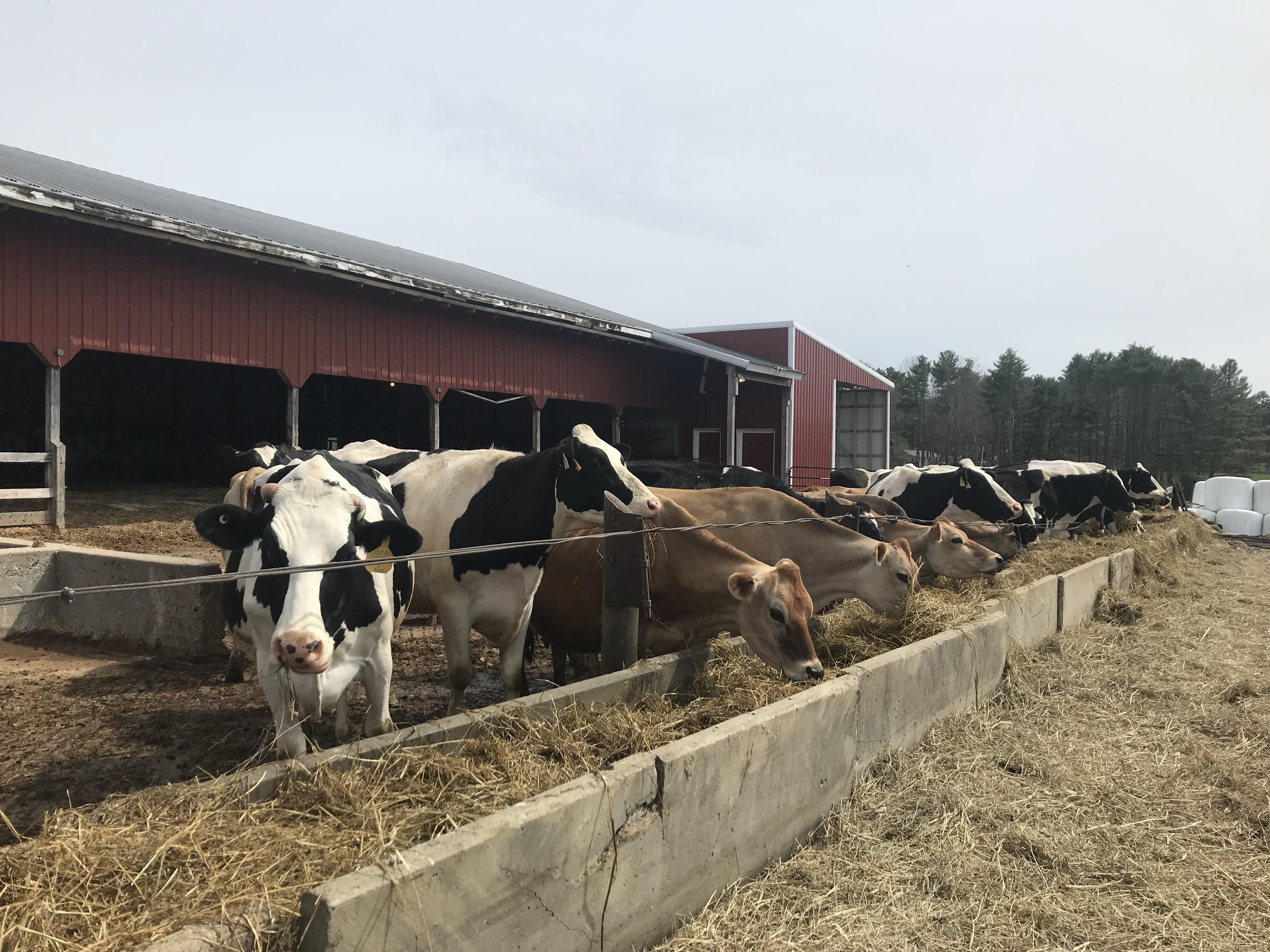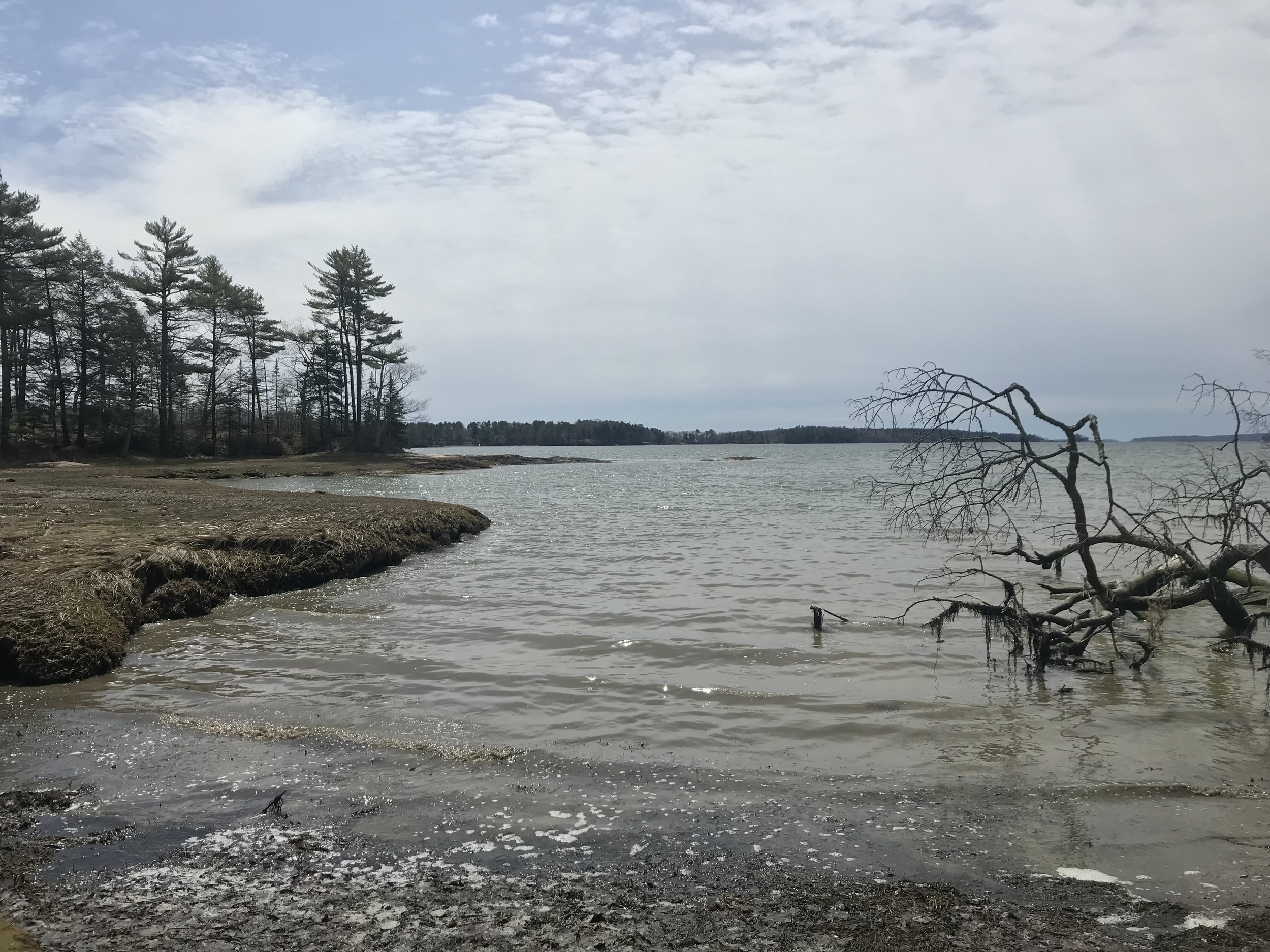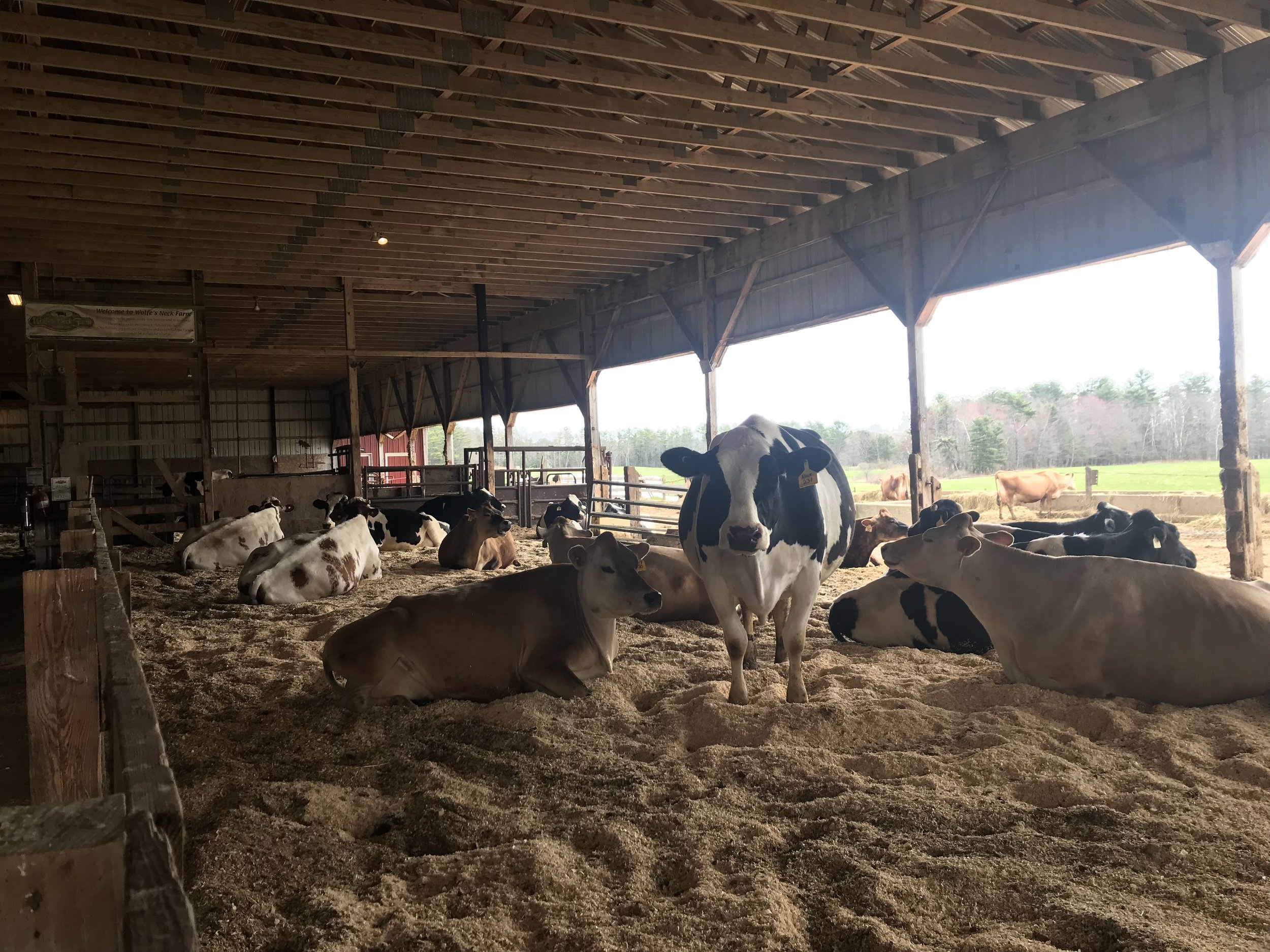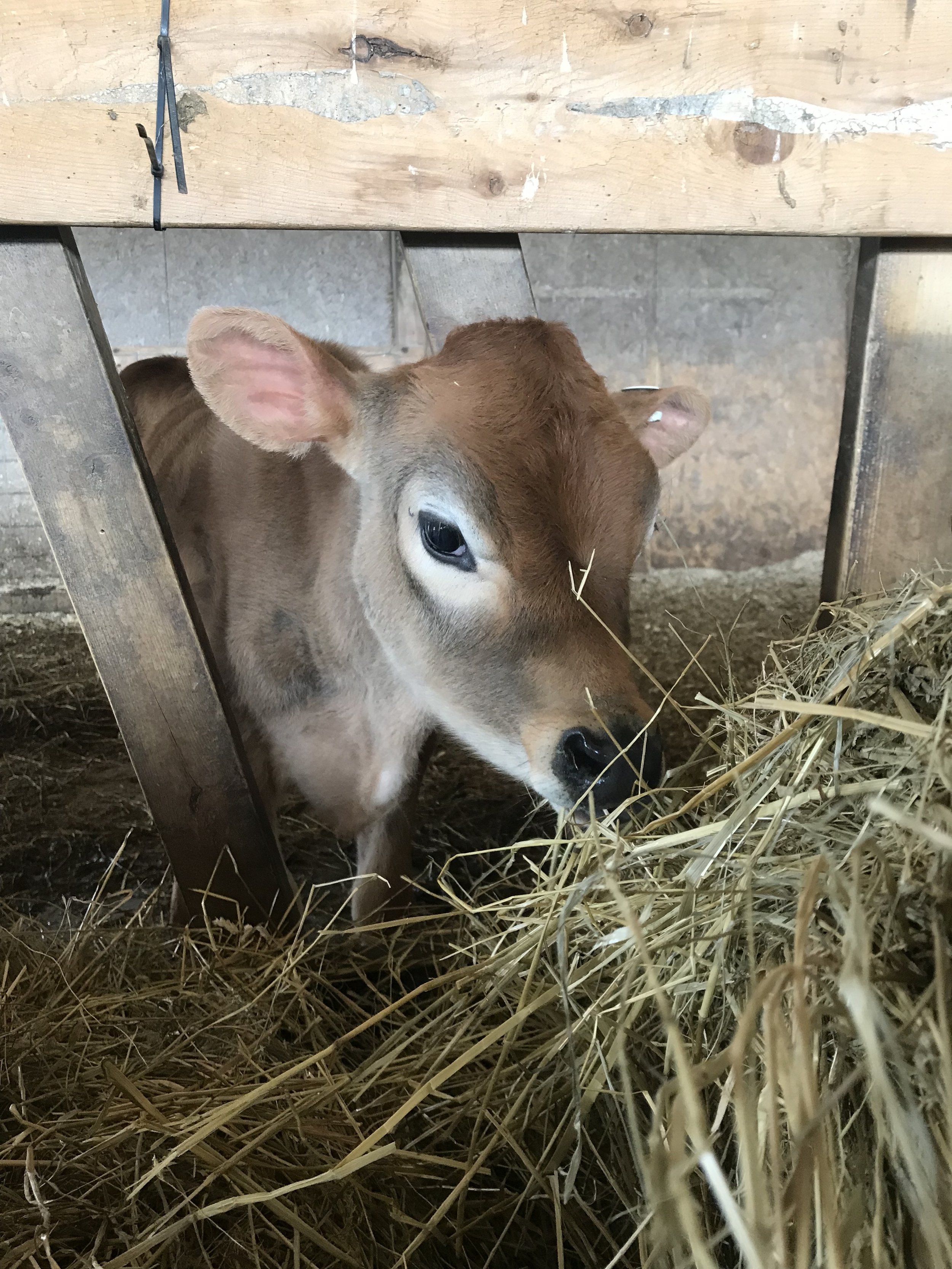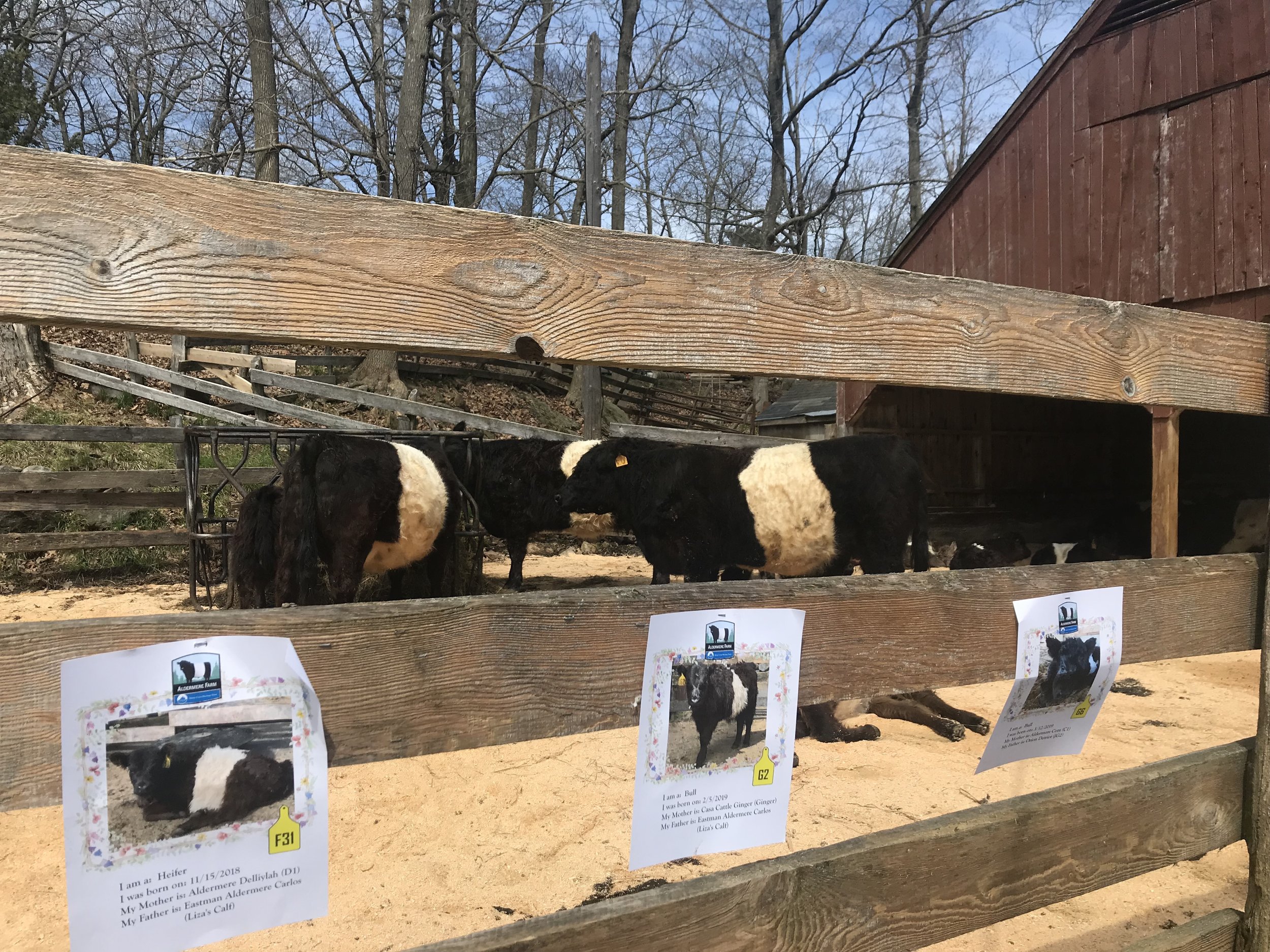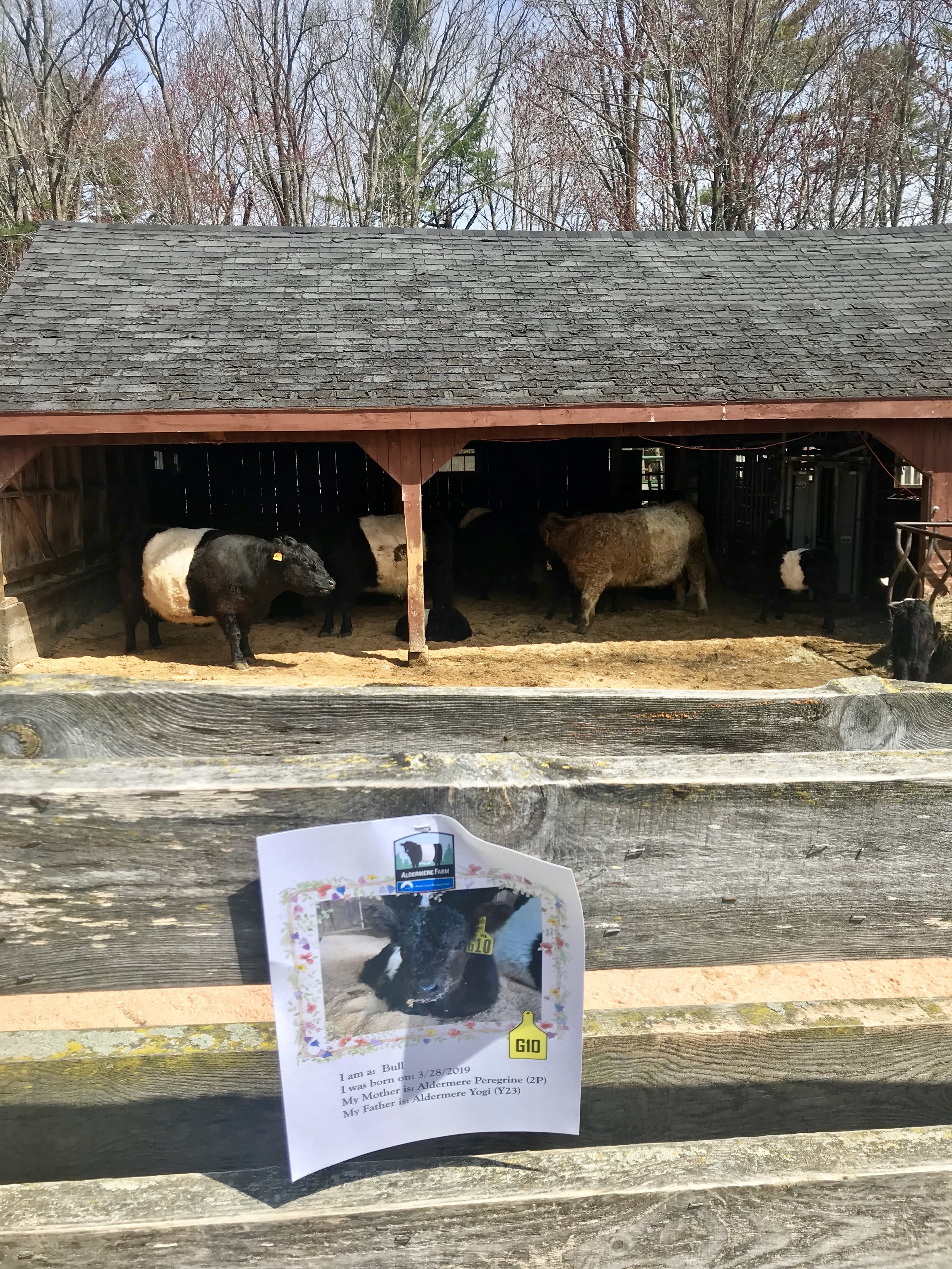As the average age of working landowners increases and younger generations increasingly choose jobs and lives in more urban or populated areas, the rural landscape is changing. Across the west, farms and ranches are changing hands and subsequently no longer being owner-operated or sometimes being subdivided or at times kept intact, but taken out of production. These land-use changes resulting from the transfer of property are not unique to the American West. And just as often as these changes present challenges, they present opportunities - for lessees, for stacking various business enterprises, for creative ownership and management structures, for community engagement, and for innovative solutions.
While in Maine this spring, we visited two working farms that have addressed these types of challenges with creativity, making each challenge an opportunity to build community and connection around working lands: Wolfe’s Neck in Freeport and Aldermere Farm in Rockport.
Wolfe’s Neck
Structured as a 501c3, Wolfe’s Neck is “a one-of-a-kind place on the coast of Maine that connects farmers, eaters, and learners to the land and animals at the core of our food systems.” Spread across over 600 acres of preserved coastal landscape the property is utilized by the non-profit to connect people to the food they eat and where it comes from.
Wolfe’s Neck offers traditional farm products through their CSA (veggie, meat, or egg). They also have an Organic Dairy Farmer Training Program, which is a two-year residential apprenticeship program for new and transitioning commercial organic dairy farmers. The first-of-its kind, this program allows apprentices to learn hands-on in Wolfe's Neck's certified organic dairy operation.
As a leading demonstration farm and educational resource center for innovative practices in regenerative agriculture, Wolfe’s Neck offers several immersive on-farm experiences for the local communities and visitors alike including a farm store, a farm café, a farm to table event series, special events such as Bees in the Barn, and a wide range of community and visitor programs led by educators (think hiking with goats or learning to milking a cow or riding in a tractor). Beyond these things, the farm also hosts a farm summer camp for kids, various school programs, and ongoing workshops.
In addition to the multiple agricultural enterprises on the coastal farm, Wolfe’s Neck also has a hospitality component consisting of 130 pet-friendly campsites along the shoreline, through forests and along fields, three oceanfront cabins, and bike and canoe rentals.
Aldermere Farm
Owned and managed by Maine Coast Heritage Trust, a land trust, Aldermere Farm is a working Belted Galloway cattle farm in Midcoast Maine that offers agricultural programming and community events. From a products perspective, Aldermere Farm has several different, but complementary revenue generating operations: beef products as well as cattle, semen, and hay for sale. From a community engagement perspective, Aldermere Farm offers youth agricultural programming, ongoing education opportunities for professional farmers, and events and community gatherings. The local 4H operates out of the farm, which also offers internships and apprenticeships. As a MCHT preserve, Aldereme Farm preserves more than just the landscape, it preserves agricultural heritage, culture, and opportunities for youth and the greater community alike while providing locally sourced beef for the surrounding towns and nearby counties.
Though different in approach and practice, each of these farms connect people to place and remain as intact working lands due a combination of their less conventional ownership structures, creative revenue stream diversification, thoughtful educational programming, and intentional community engagement. There’s not any one solution to the challenges we face, but Wolfe’s Neck and Aldermere Farms provide case studies and examples of various possibilities.



